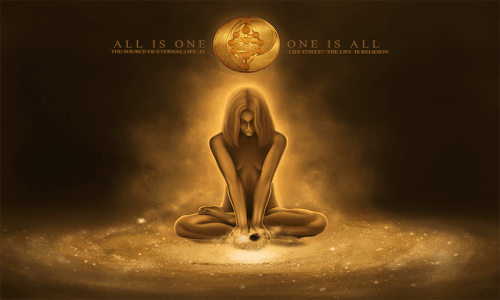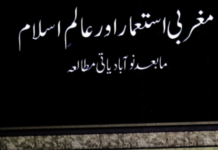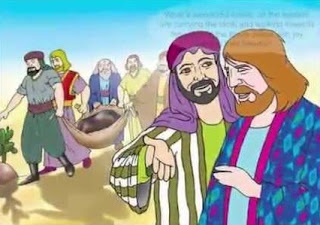Philosophy of Heraclitus-Urdu Introduction

هرقلیطوس افیسوسی۔ قدیم یونانی فلسفی
Heraclitus was born in about 540 B.C. to one of the aristocratic families of Ephesus, near Colophon. His noble birth brought with it an important hereditary role in the life of the city, a position that involved responsibilities as both a political and religious leader (for instance, he would have been in charge of supervising the city’s official sacrifices). Watch Video of Detailed Biography Here in Philosophy of Heraclitus-Urdu Introduction
All Things are One
A more likely interpretation of Heraclitus’s claim that all things are one focuses on the paradoxes he presents rather than on his statements concerning fire. The paradoxes of opposites that Heraclitus presents fall into three broad sorts: First there are several paradoxes that seem intended to alert us to the co-existence of opposites. So, for instance, he points out that the same ocean water can be undrinkable and dangerous to us but drinkable and life-sustaining to fish. The next bunch of paradoxes seems to point to a stronger relationship between certain opposites, a metaphysical and conceptual dependence.
God or the Logos
The road up and the road down, he points out, are the same road. One cannot exist without the other, nor can we think of one without thinking of the other. Similarly, night and day are dependent in this way. There would be no night without day and vice versa. Finally, in the last bunch of paradoxes, we get the strongest sort of relation, a relation of identity. God (or the logos), he tells us, is both night and day, winter and summer, war and peace, satiety and hunger.
All is Flux
Like all of the Presocratics, Heraclitus is sure that there is an equilibrium in nature. Some constant state that gets maintained, but unlike the others. He believes that the equilibrium state is a state of constant flux. The cosmos is a place of constant change, with hidden underlying stability. Which is in the form of the divine law according to which all change takes place. Returning now to the idea of fire, we can understand why Heraclitus identifies that substance as the most fitting metaphor for the logos: fire is a substance of constant change.
HODOS ANO KATO, “THE WAY UP AND THE WAY DOWN”
According to Heraclitus, worldly pleasures made the soul “moist”. He considered mastering one’s worldly desires to be a noble pursuit which purified the soul’s fire. Russell, Bertrand, History of Western Philosophy Norman Melchert interpreted Heraclitus as using “fire” metaphorically, in lieu of Logos, as the origin of all things.
DIKE ERIS, “STRIFE IS JUSTICE“
If objects are new from moment to moment so that one can never touch the same object twice. Then each object must dissolve and be generated continually momentarily. An object is a harmony between a building up and a tearing down. Heraclitus calls the oppositional processes ἔρις Eris, “strife”, and hypothesizes that the apparently stable state, δίκη dikê, or “justice,” is a harmony of it.
Note: This article was originally published on our related blog. We have merged content from our educational subdomains to provide easier access in one place. The original post is still available at: http://www.books.urdutubes.com/2019/04/philosophy-of-heraclitus-urdu-introduction.html
All content is owned and authored by us, and redistribution or reuse is not allowed without permission.
Note: This post is part of our content merger from multiple educational subdomains. To access the original content, visit: books.urdutubes.com for book-related content, PDFs, and downloads, or videos.urdutubes.com for video-related posts. All content is owned and authored by us, and redistribution or reuse is not allowed without permission.




![Khawateen Digest February 2025 [Download PDF] Khawateen Digest – February 2025 Edition: A Must-Read for Every Woman! The February 2025 issue of Khawateen Digest is packed with engaging stories, insightful articles, and practical tips that cater to the modern woman. From inspiring tales to expert beauty and health advice, this edition has it all. Whether you're in the mood for a gripping story or seeking helpful tips for daily life, this digest will keep you hooked. Don't miss out on the latest edition – download the Khawateen Digest February 2025 now and enjoy a well-rounded read that speaks to every woman's interests.](https://www.urdutubes.com/wp-content/uploads/2025/04/Khawateen-Digest-February-2025-Download-PDF-218x150.jpg)
![Khawateen Digest January 2025 [Download PDF] Khawateen Digest January 2025 [Download PDF]](https://www.urdutubes.com/wp-content/uploads/2025/04/Khawateen-Digest-January-2025-Download-PDF-218x150.jpeg)
![Kiran Digest April 2024 [Download PDF] Kiran Digest April 2024 [Download PDF]](https://www.urdutubes.com/wp-content/uploads/2025/04/Screenshot-2025-04-13-113317-218x150.png)
![Kiran Digest March 2024 [Download PDF]](https://www.urdutubes.com/wp-content/uploads/2018/05/KiranDigestMay2018255BDownloadFreePDF255D.jpg)







![Shuaa Digest February 2021 [Download Urdu Digest PDF]](https://www.urdutubes.com/wp-content/uploads/2018/03/ShuaaDigestFebruary2018.jpg)